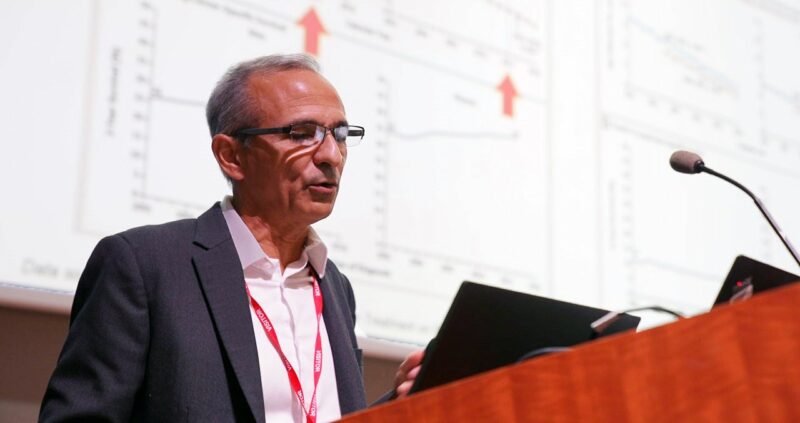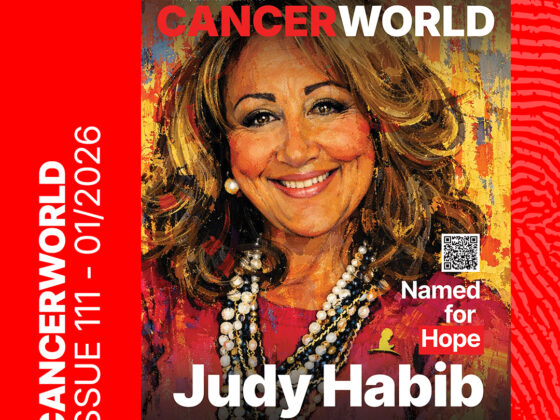Precision cancer medicine aims to improve diagnosis and treatment at the molecular level. Although genomics has influenced what precision medicine encompasses today, research is at a turning point. There is currently a common public (and often governmental) misconception that data obtained from genomics alone provides all the necessary information to understand the biology of human health and disease and support precision medicine. While it is true that precision medicine could not exist without the human genome and the accomplishments of genomics-based cataloging initiatives, today there is an acknowledgement that genomic analysis alone does not always provide sufficient insights into the molecular classification of cancer. Measuring and comprehending the downstream effects of gene changes (proteomics) is essential for understanding cancer biology and transferring discoveries to patient care more quickly and effectively. Together, this multi-omics approach, “proteogenomics”, holds great promise to reveal new molecular patterns of cancer biology, with the potential to inform new approaches to cancer diagnostics and therapeutics.
It is at this intersection that Henry Rodriguez finds himself at the forefront in this emerging area of precision medicine. As the founding director of the US National Cancer Institute’s (NCI’s) of Cancer Clinical Proteomics Research and a member of the NCI senior leadership team, Henry Rodriguez oversees the strategic direction for proteogenomics initiatives in cancer research in order to advance the goals of the NCI – the largest funder of cancer research in the world.
It is also unexpected that Henry Rodriguez is in this situation. With a background in cell and molecular biology (with a focus on genomic technologies), fellowships in clinical cancer research, and a business degree in finance and management, his goal was to work in the private sector. The turning point for Rodriguez came early in his career, when he realized that, if you want it to, the US federal government can be supportive of fast-paced outside-the-box thinkers that help lead cancer research strategies and policies that support cancer research to advance scientific knowledge and help all people live longer, healthier lives than ever before.
Today, Henry Rodriguez is pursuing his vision to fully integrate proteogenomics into cancer research and clinical trials to advance patient care. This journey has produced the Clinical Proteomic Tumor Analysis Consortium, a landmark cancer research program that brings together multiple institutions with diverse disciplines across the United States; the International Cancer Proteogenome Consortium, a Cancer Moonshot international program that encourages collaboration and public data dissemination among institutions across the globe; and recently had Rodriguez serving as Assistant Director for Strategic Health and Cancer Science in the Executive Office of the President at the White House.
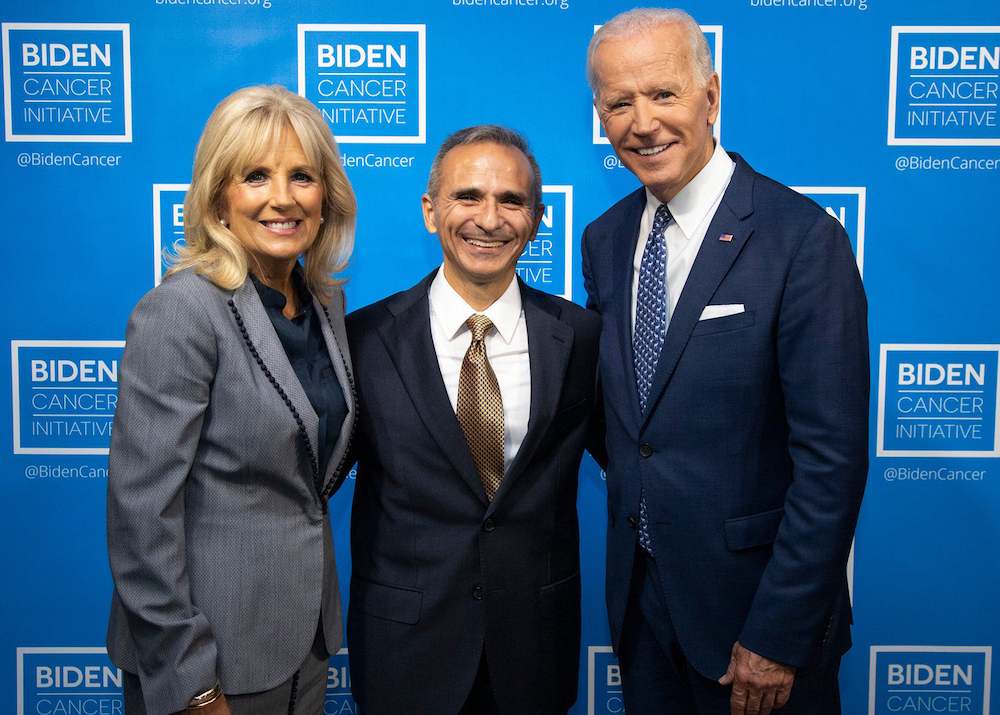
The hope of revolutionizing cancer care by changing fatal diagnoses into illnesses that may be treated, managed, or perhaps even prevented altogether through coordinated and collaborative research teams within and among countries with a robust policy of data sharing, according to Rodriguez, is extraordinary. This collaborative process (the golden age of cancer research) is what keeps Rodriguez going.
Making a case for standards, next-generation tumor analysis, and data sharing
Rodriguez joined the NCI in 2006 to build and lead its clinical proteomics initiatives. With research positions at the National Institute of Standards and Technology (NIST) and having served as health sciences policy analyst in the office of the director covering issues in high-risk technology initiatives, including liaising with Congress and the Department of Health and Human Services Secretary’s Advisory Committee on Genetic, Health, and Society (SACGHS), the transition to the NCI was ideal.
Following the completion of the first draft of the Human Genome Project in early 2001, interest by the cancer research community in large-scale protein sequencing technologies for disease molecular characterization (discipline referred to as proteomics) gained rapid interest because of its potential for early illness identification and the development of effective treatments. It was seen as the next holy grail in cancer research following the draft completion of the Human Genome Project. Unfortunately, the cancer research community was hesitant to apply this promising strategy to clinical studies due to a lack of reproducibility between labs (a crucial condition for precision testing) and overhyped biomarker claims.
As a result, with Rodriguez at the helm, the NCI established the Clinical Proteomic Tumor Analysis Consortium (CPTAC) – a team-based approach to researching this emerging field in biomedical research. Rodriguez was well aware of the skepticism of his colleagues in the cancer research and policy community. Rodriguez’s first goal, as a result, was to foster scientific trust and confidence in proteomics science by addressing standardization in proteomic tools and workflows. Concurrently, Rodriguez adds that he worked with his counterparts at the U.S. Food and Drug Administration and the American Association for Clinical Chemistry, establishing bilateral partnerships that would enable the activities (outputs) from CPTAC to be coordinated with the missions of these organizations (regulatory and clinical).
After overcoming these reproducibility barriers, Rodriguez worked with his team, NCI senior leadership, and the cancer research community on enabling CPTAC to use its standardized procedures on tumors that had already been genomically characterized by the NCI’s The Cancer Genome Atlas (TCGA) program. The thought here was that to arrive at truly comprehensive molecular portraits that are much more likely to inform our understanding of disease, scientists need to integrate proteomics with the study of other molecules to capture the complex interactions between genomics (DNA and RNA) and proteomics (proteins). These demonstration projects unequivocally showed how proteogenomics can provide new insights into cancer biology and potentially therapeutic interventions for patients, while also producing open source research data that the global cancer community can use.
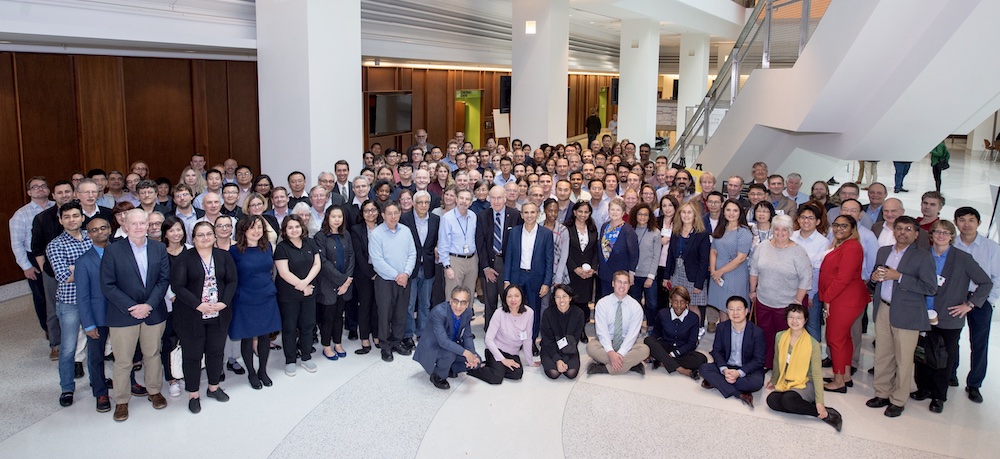
Rodriguez, a longtime proponent of international cooperation in the fight against cancer emphasizes that a common need that will accelerate progress in cancer breakthroughs is breaking down data silos. Open data ecosystems [exchange of information] are critical to advancing science, improving health, and creating advances in the delivery of health care services. In particular, Rodriguez emphasizes that whole-of-government approaches such as the U.S. Cancer Moonshot provides great opportunities to accelerate the importance of data sharing (domestic and international) for all kinds of basic and clinical data. The targeted therapies of the precision medicine era have further amplified the need for data sharing as populations being studied become smaller and necessitate more interinstitutional collaborative studies. Rodriguez understands there are going to be differences (between countries), yet he is always optimistic on adopting or developing policies of data sharing to the fullest extent allowed by adherence to ethical principles and the wishes of patients.
Changing public perceptions
The cancer research community’s increased confidence in proteogenomics as a result of the success of these demonstration studies empowered Rodriguez and the NCI to further extend CPTAC’s tumor characterization program and, for the first time, forge collaborations with clinical trials. CPTAC has now characterized eleven tumor types and is coordinating with clinical trials, far exceeding scientists’ expectations. The NCI has been able to create some of the most comprehensive public repositories of multiomics tumor datasets in the world thanks to this unprecedented body of work.
Rodriguez emphasizes that this strategy by CPTAC began to open new channels of collaboration. One such need was in pediatric cancer. Recognizing the opportunity and urgency, CPTAC, the Children’s Brain Tumor Network, Gabriella Miller Kids First Pediatric Research Program, and research facilities/hospitals in the United States joined forces to pilot a study on brain tumors, the most prevalent and lethal cancers among solid tumors that affect children and adolescents. The study uncovered the complex biology that drives the spread of this cancer, as well as potential new targeted therapeutic solutions for pediatric brain tumors.
An advocate for cancer research around the world
Collaboration has long been a part of cancer research, but in recent years, the nature of collaboration has shifted from research conducted within institutions to team science approaches involving partnerships across academic, governmental, and for-profit institutions in order to respond to the complex challenge of cancer.
When the White House Cancer Moonshot Task Force (then led by former Vice President Biden) in 2016 asked Rodriguez to develop Cancer Moonshot initiatives, he didn’t hesitate to promote team science, data sharing, and the exciting new field of proteogenomics. In this regard, Rodriguez founded the International Cancer Proteogenome Consortium (ICPC) at the NCI following significant networking with researchers and doctors from different institutions across the globe. ICPC encourages institutions and nations to collaborate and invest in proteogenomic cancer research, as well as to make their data available to the public on an unprecedented international scale, in order to advance cancer research and care worldwide.
According to Rodriguez, this effort has resulted in a growing network of world-class research institutions whose studies truly reflect the diversity of cancer patients. The ICPC now has more than 20 member institutions (from 14 countries) that have joined the global fight against cancer – “cancer has no borders,” as Rodriguez likes to say.
Furthermore, in order to encourage more institutions to join this global partnership, the Human Proteome Organization convened a global leadership event in 2017 with the theme “International Cooperation in the Fight Against Cancer.” The event brought together ICPC teams to encourage greater cooperation and collaboration in the global fight against cancer, with former Vice President Biden as the keynote speaker. Rodriguez believes that the ICPC is in a unique position to build on the Cancer Moonshot vision. Its scientific approach is a top priority, and ICPC is well positioned to make real-world progress against common and rare cancers worldwide.
Recently, Rodriguez was asked to join the White House in 2021 as Assistant Director for Strategic Health and Cancer Science in the Executive Office of the President. In this detail, Rodriguez describes being thrust into a fast-paced learning team environment (which he coveted), while also making time to form friendships across the federal government that will last a lifetime. When asked on what he is most proud of in terms of accomplishments during this time at the White House, Rodriguez mentions the reignition of the U.S. Cancer Moonshot, launch of the Advanced Research Projects Agency for Health (ARPA-H), and thinking how to improve clinical trials and making them more inclusive.
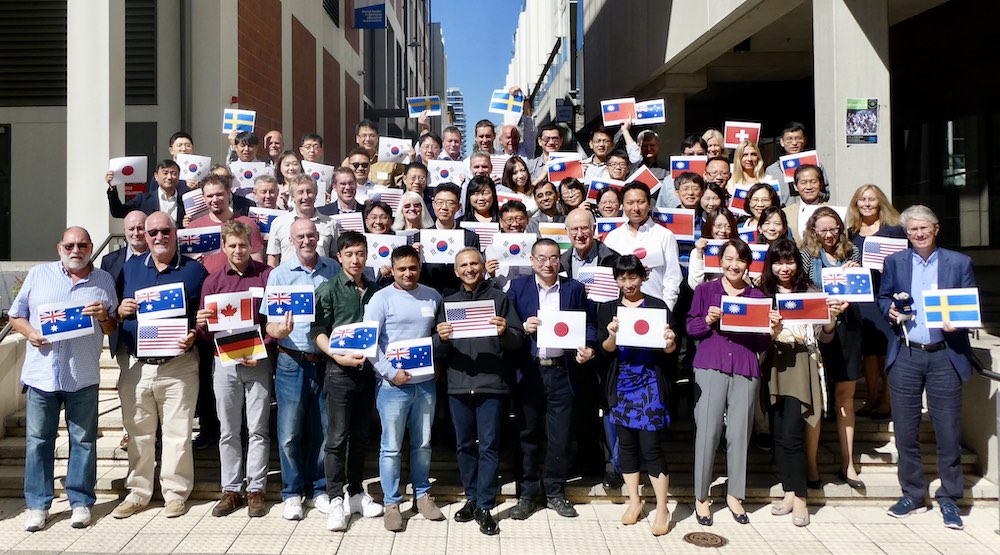
During this time, Rodriguez also became aware of the European Union Beating Cancer Plan, which is organized around four action areas (prevention, early detection, diagnosis, and treatment), and incorporates a focus on reducing disparities and childhood malignancies. In what Rodriguez decribes as a demonstration of “the value of networking”, he was introduced to Alberto Costa, currently the Special Adviser for EU cancer policy in the Cabinet of European Commissioner for Health and Food Safety, by the Senior Vice President at Memorial Sloan Kettering Cancer Center Larry Norton. Rodriguez says that, after a series of exploratory calls and meetings with Costa, a highlight was coordinating a visit by European Health Commissioner Stella Kyriakides to the NCI in 2022 to meet with senior leadership and continue a dialogue on areas of potential collaboration between the NCI/Cancer Moonshot and EU Beating Cancer Plan/Mission on Cancer. The meeting’s consensus was support for coordinating efforts to accelerate cancer research and care, a strong willingness to identify ways to reduce barriers to data sharing, and an interest in cancer screening and treatment research and trials with a focus on pediatric and rare cancers, as well as adult cancers.
Rodriguez says that after a series of exploratory calls and meetings with Costa, a highlight was coordinating a visit by Kyriakides to the NCI in 2022 to meet with senior leadership and continue a dialogue on areas of potential collaboration between the NCI/Cancer Moonshot and EU Beating Cancer Plan/Mission on Cancer. The meeting’s consensus was support for coordinating efforts to accelerate cancer research and care, a strong willingness to identify ways to reduce barriers to data sharing, and an interest in cancer screening and treatment research and trials with a focus on pediatric and rare cancers, as well as adult cancers.
What comes next/Lessons learned
Rodriguez underlines that cancer is unquestionably one of the biggest public health issues that humanity is now facing. He considers cooperation (national and international) crucial because it streamlines efforts to overcome the difficulties of precision medicine and brings together specialists from various fields to work toward a shared objective.
Precision medicine will continue to advance, according to Rodriguez. The integration of proteogenomics into clinical trials and patient care, along with interdisciplinary collaboration, data sharing, and patient involvement, in his opinion, will transform the way we think about patients and treatment – not just for the various types of cancer, but potentially for many other diseases as well. And when asked about the future of precision medicine (his vision), Rodriguez responded without hesitation that he “looks forward to when precision medicine will simply be called medicine,” because at that point you will know you have succeeded.
Finally, when asked what lessons he has learned from his years of experience working in research and science policy, Rodriguez paused for a second and noted that life (both personal and professional) has taught him that there is no one-size-fits-all approach to tackling a project. As a Cuban American whose parents immigrated to the United States, he reflects on his path from his childhood days in Miami, Florida, to Boston, Massachusetts for higher education, to Southern California for fellowships in cancer clinical research, to his current position at the National Cancer Institute just outside of Washington, DC, and meeting some of the most amazing people in their field. He concludes that it is important to surround yourself with smart people who are motivated and will challenge you, and more importantly, it is essential to have a vision that provides direction and anticipates the needs of a biomedical research enterprise. This vision guides how we spend our time and serves as the foundation for reaching out to others. And it is our commitment to achieving that vision that serves as the unifying voice for bringing people together.

